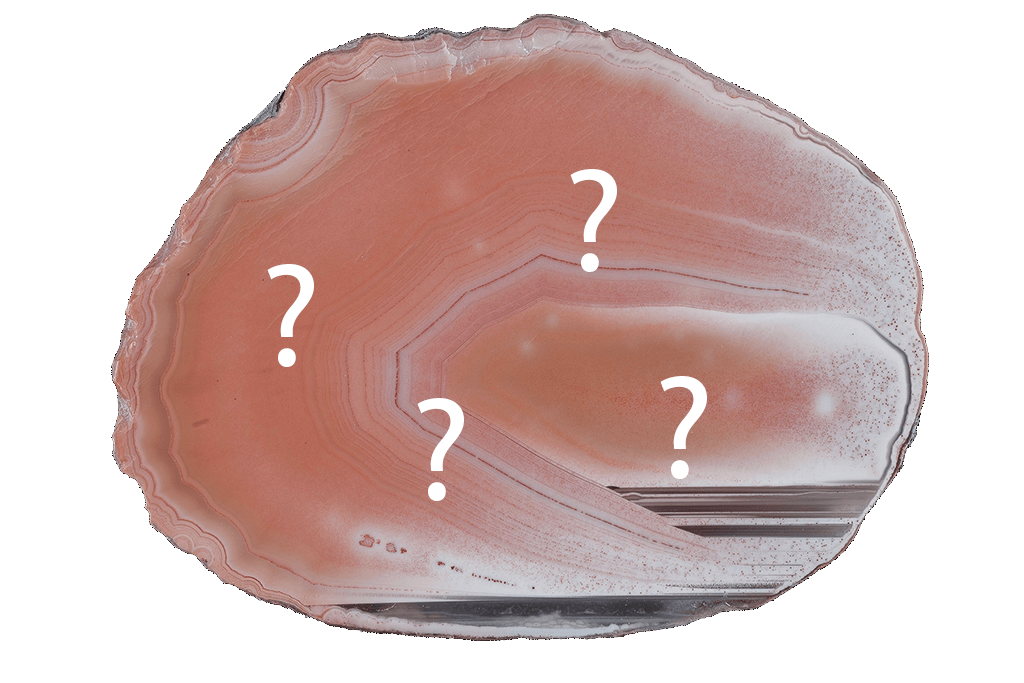
It may come as a surprise, but nobody actually knows how agates are formed. Plate tectonics? The evolution of birds from avian dinosaurs? The composition of the Earth’;s core? Yes, geologists have all of these covered. But not the formation of agate. The mechanism remains unknown and, although there have been a number of theories, there remnains no consensus.
Why is this? Well one reason is simply that the formation of agate is not an important enough question. Answering it is of little or no commercial value, and it simply does not have the kudos that topics like tectonics, evolution and the structure of the Earth do. Most geologists, even if they are aware of the issue, regard it as little more than a curiosity. And funding organisations are hardly queuing up to sponsor research. So, while there have been some significant contributions and academic papers that we shall refer to (at least those that are in the public domain and not hidden behind a pay wall), for the most part the question of how agates are formed is left to the knowledgable enthusiast or collector.
The second reason is that nobody has been able to reproduce the required conditions for agate formation and nobody has been able to produce and produce a synthetic agate. In truth, this may never be possible. It may be that the environment in which agates form, and, critically, the time scale required are simply beyond our abilities. Should we therefore simply shrug our shoulders and accept the fact that we will never know? Of course not. Not being able to drill down and sample the Earth’s mantle does not prevent us from exploring its composition and properties from whatever evidence we can gather. So it should be with the formation of agate. we should assemble whatever evidence we can, whether we be academic or amateur, in order to produce a working hypothesis.
Does it matter? Well, if you have continued reading up to this point it probably means that, like me, your natural curiosity makes the formation of agate an entirely worthwhile topic for research and discussion. So for me, the answer is yes.